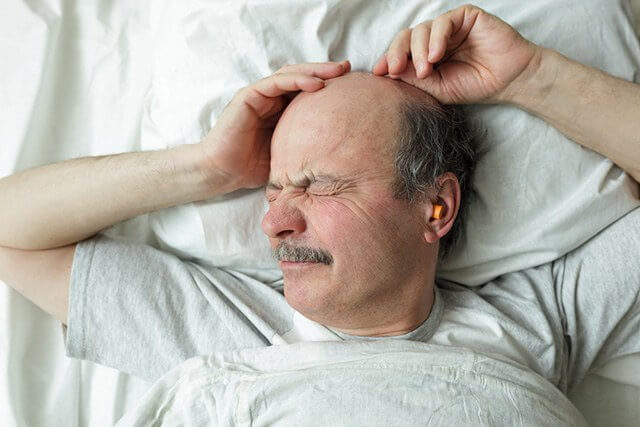replaying an argument you had with your son or daughter. Other times, you fall asleep just fine but wake up repeatedly throughout the night. You might not even remember waking up, you only know you feel groggy and tired all the next day. How Does a Lack of Sleep Impact Seniors Like Me? Regardless of why you are losing sleep, poor quality sleep can have serious negative effects on our overall well-being. This is especially true for seniors. In fact, recent studies have shown that trouble with sleeping can have health consequences for seniors such as:
- Dementia: Poor sleep can cause memory issues, which can, in turn, result in poor sleep. This is a cycle that must be broken early.
- Cardiovascular disease: Difficulty maintaining sleep can result in an increased risk of heart disease and stroke.
- Obesity: Low-quality sleep can disrupt appetite, increasing energy consumption, which is why fitness for seniors is essential.
- Weakened immune system: Studies show that a lack of sleep makes people more susceptible to colds, the flu, and the H1N1 virus.
- Inability to concentrate, mood swings, and irritability.
For most seniors, health is a major concern. Poor sleep can prevent you from making progress in certain areas or worsen the impact of health issues you are already battling. So, Why Aren’t I Getting Enough Good Sleep? There could be one reason or several reasons as to why a senior might experience poor sleep quality. Sometimes a sleep disorder is to blame. You may be suffering from:
- Sleep apnea: Breathing that is briefly and repeatedly interrupted during sleep can lead to fragmented sleep and low blood oxygen levels.
- Periodic limb movement: The rhythmic and repetitive jerking or spasming of legs and arms that can disrupt sleep and cause daytime drowsiness.
- Restless leg syndrome: Sensations in the legs that cause people to move their legs in their sleep. This can cause them to wake up frequently or not sleep well enough.
You may have one of several of these symptoms — or none at all. It may be that something mental or emotional is keeping you awake at night. How Can I Get Better Sleep? Sleep can be impacted by anxiety, depression, or stress. About 5 percent of people over 65 have reported depression, often stemming from the loss of a lifelong partner. Stress and anxiety around illnesses, memory loss, and reduced independence can also play a big part in harming sleep. You can help with the physical and mental issues around sleep disorders by focusing on healthy sleep behaviors like:
- Choosing a mattress that makes sleep more comfortable. If you’re in the market for a new mattress, be sure to consider both your budget and sleep style. While certain mattress models better accommodate specific sleep styles (i.e. back or side), others are much better suited for others (i.e. stomach). And while it’s true some mattresses can be expensive, they come in a wide range of prices, which means finding a mattress for under $1,000 that suits your specific sleep style is possible.
- Keeping a regular sleep schedule. If you stick to a strict schedule, your body will eventually learn when it’s time to hit the hay every evening.
- Avoiding caffeine or foods with high sugar content close to bedtime. The more you consume food and beverages that keep your body wired, the more difficulty you’ll have training your body to fall asleep at night.
- Making your bedroom more sleep-friendly by painting it a light blue or green, using soft light, and removing clutter.
Will Insurance Pay for Sleep Disorder Testing? You may be able to have Medicare cover the costs of diagnosing and treating your sleep disorder. Medicare will cover medically necessary testing, which might include monitoring for eye movements, leg movements, respiration, pulse, oxygen saturation, nasal flow, and snoring while asleep. If you are diagnosed with sleep apnea, Medicare may cover the cost of a three-month trial of a continuous positive airway pressure (CPAP) therapy mask. Once the trial is up, Medicare will want to know if the therapy has been effective before continuing coverage. If you need more coverage, you can talk to your health insurance provider about the possibility of purchasing supplemental Medicare coverage. Losing sleep isn’t just about being groggy the next day. For seniors, poor sleep quality can mean a poor sense of overall well-being. Getting a good night’s sleep is key to a good life. About Fitness for Health: Fitness for Health creates unique exercise programs based on a person’s individual fitness goals. Want to create a senior wellness plan? Need to improve your bone and joint health? No problem! Fitness for Health will you help you and your loved ones reach your full potential.]]>
Tags: sleep apnea, depression, mental health, sleep, obesity, aging, fitness for seniors, weight gain, exercise, senior health, health, fitness, dementia

